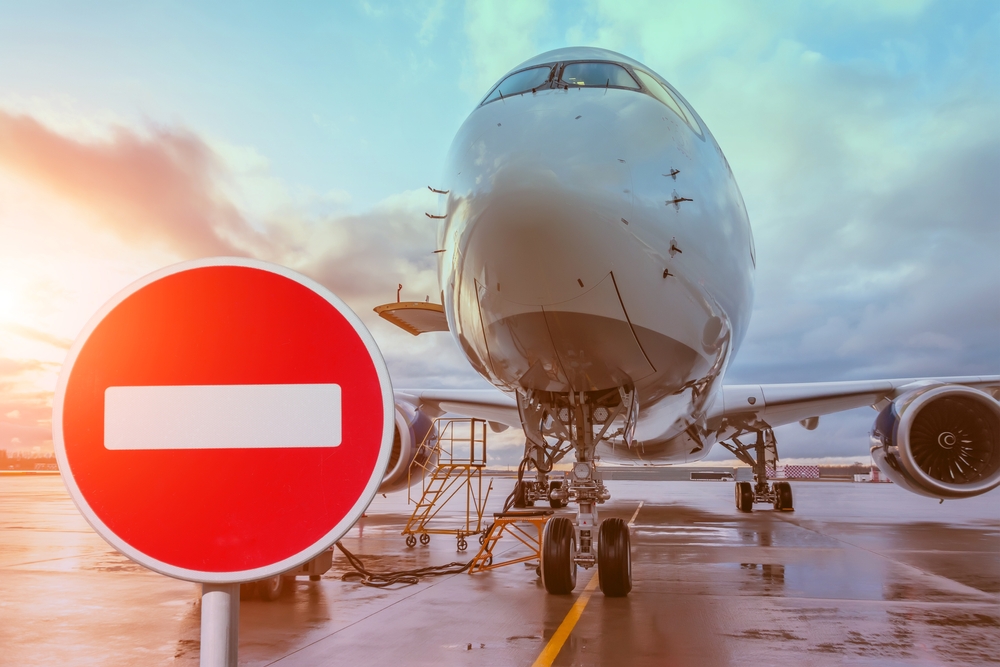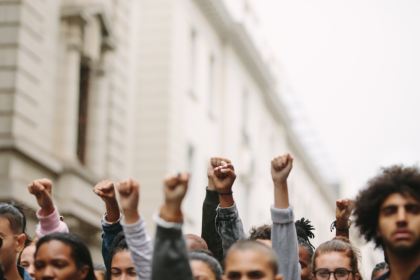President Donald Trump’s 2025 travel ban, which restricts or blocks entry from 19 countries, is creating significant economic repercussions across various sectors of the U.S. economy that depend on international talent, tourism, and global business connections. While the administration cites national security concerns as justification for the policy, the restrictions are disrupting industries in ways that could have lasting economic consequences.
The sweeping nature of the travel restrictions is affecting everything from tourism revenue to healthcare staffing, technology innovation, and university research programs. Companies that have built their business models around international talent pipelines are scrambling to adapt, while entire sectors face workforce shortages that could impact service delivery and competitiveness.
The economic impact extends far beyond the immediate affected countries, creating uncertainty for businesses, disrupting established supply chains, and potentially damaging America’s reputation as a destination for international investment, tourism, and academic collaboration.
Tourism industry faces massive revenue losses and booking cancellations
The U.S. tourism industry is experiencing a severe downturn directly attributed to the travel ban and associated restrictive immigration policies. International arrivals have decreased by 6 percent over the past month, with the decline accelerating as news of the restrictions spreads globally and affects travel planning decisions.
European bookings have plummeted by 12 percent through August, indicating that the travel restrictions are creating broader concerns about visiting the United States even among travelers from countries not directly affected by the ban. This suggests that the policy is having ripple effects on overall international travel sentiment.
Canadian travel has seen particularly sharp declines, with air travel down 20 percent and land crossings down 35 percent. These decreases are attributed to opposition to the administration’s immigration policies and reports of increased detentions and scrutiny at U.S. borders that are discouraging discretionary travel.
The World Travel & Tourism Council projects a potential $12.5 billion loss in tourism revenue for 2025, with overseas visitor spending expected to fall by 7 percent to under $169 billion. This represents a significant economic hit to hotels, restaurants, attractions, and the thousands of businesses that depend on international visitors.
Healthcare sector struggles with deepening workforce shortages
The travel ban is exacerbating existing staffing shortages in the U.S. healthcare sector, particularly affecting underserved and rural areas that already struggle to attract and retain medical professionals. These regions often depend disproportionately on immigrant healthcare workers to maintain basic services.
Healthcare workers from affected countries like Iran, Afghanistan, and Haiti have historically filled critical gaps in American healthcare, often serving in high-need regions where domestic workers are reluctant to practice. The visa restrictions are blocking new healthcare professionals from entering while creating uncertainty for those already working in the system.
The timing of these restrictions coincides with ongoing healthcare workforce challenges that have persisted since the pandemic, making the impact particularly severe. Rural hospitals and community health centers that serve vulnerable populations are likely to see the most immediate effects.
The restrictions could deepen workforce shortages and strain patient care capacity at a time when healthcare systems are already struggling with burnout, staffing challenges, and increased demand for services across multiple specialties.
Technology companies face innovation and talent pipeline disruption
U.S. technology companies and research institutions that are heavily dependent on international talent in critical fields such as artificial intelligence, engineering, and cybersecurity are finding their hiring processes significantly complicated by the new restrictions.
The travel ban is blocking new hires from affected countries while creating uncertainty for current employees who may face challenges with visa renewals and status adjustments. This uncertainty is potentially disrupting ongoing projects and threatening innovation pipelines that depend on diverse international talent.
Technology companies have built their competitive advantage partly on their ability to attract the best talent globally, regardless of origin country. The restrictions force these companies to either limit their talent pools or invest significantly more resources in navigating complex visa processes and legal challenges.
The impact extends beyond individual companies to entire innovation ecosystems, as research collaborations, startup founding teams, and academic partnerships that drive technological advancement may be disrupted by the inability of key personnel to obtain or maintain legal status.
Universities lose international faculty and research collaboration
U.S. universities, which have historically relied on faculty, researchers, and graduate students from around the world, are facing significant disruptions to their academic programs and research initiatives. Countries like Iran, Libya, Cuba, and Myanmar have traditionally supplied talented academics and researchers to American institutions.
The travel restrictions threaten to hinder academic collaboration and the free exchange of ideas that drive innovation and discovery in fields ranging from medicine to engineering to social sciences. International partnerships that took years to develop may be severed by the inability of participants to travel freely.
Graduate programs that depend on international students for research projects, teaching assistance, and intellectual diversity are finding it difficult to maintain their programs at previous levels of excellence. This could affect the overall quality and competitiveness of American higher education.
The long-term implications extend beyond immediate disruptions to potentially damaging America’s reputation as a destination for international academic talent, which could have lasting effects on the country’s research capabilities and global academic standing.
Manufacturing and skilled trades lose established labor pipelines
The manufacturing and skilled trades sectors, which depend heavily on immigrant workers for specialized roles such as machinists, welders, and technicians, are experiencing disruptions to established labor pipelines that have developed over decades.
Refugee communities from Sudan and the Democratic Republic of the Congo have established themselves in manufacturing hubs across the United States, often filling critical roles in industries that struggle to find domestic workers with the necessary skills and willingness to work in these positions.
The travel ban could disrupt these established communities and labor pipelines, forcing manufacturing companies to find alternative sources of skilled workers or invest significantly more in training domestic workers for these specialized roles.
The timing is particularly challenging as American manufacturing is experiencing a resurgence, but companies are struggling to find enough skilled workers to fill available positions, making the loss of international talent particularly problematic for industry growth.
African nations face diplomatic and economic strain
The travel ban has particularly strained diplomatic and economic relationships with several African nations, with seven African countries facing full entry bans while three others operate under partial restrictions that affect business and cultural exchanges.
A proposed 3.5 percent tax on remittances under the “One Big Beautiful Bill Act” could severely impact African economies that rely heavily on funds sent home by diaspora communities working in the United States. These remittances often represent significant portions of national GDP for some countries.
The restrictions are affecting not just individual travelers but entire economic relationships that have been built between American companies and African partners over many years. Business partnerships, investment flows, and trade relationships may all be impacted by the reduced ability to travel and collaborate.
The diplomatic consequences could extend beyond immediate economic impacts to affect America’s broader strategic relationships in Africa, a continent that is increasingly important for global trade, resource access, and geopolitical influence.
Legal compliance costs and operational complexity increase
Businesses across all affected sectors are encountering dramatically increased compliance burdens due to the travel ban, with visa processing delays, heightened scrutiny, and potential denials creating significant operational challenges for employers.
Companies must reassess their global mobility programs and ensure alignment with constantly evolving U.S. immigration requirements to mitigate legal and financial risks. This often requires hiring additional legal counsel and compliance staff, increasing operational costs.
The uncertainty created by changing policies makes long-term business planning extremely difficult, as companies cannot predict whether key employees will be able to obtain or renew visas, travel for business purposes, or bring their families to the United States.
Legal challenges to the travel ban are creating additional complexity, as businesses must navigate not only current restrictions but also prepare for potential policy changes based on court decisions or administrative modifications.
While the travel ban aims to address national security concerns, its broad economic implications across multiple industries demonstrate the complex interconnections between immigration policy and economic vitality in an increasingly globalized economy.


















